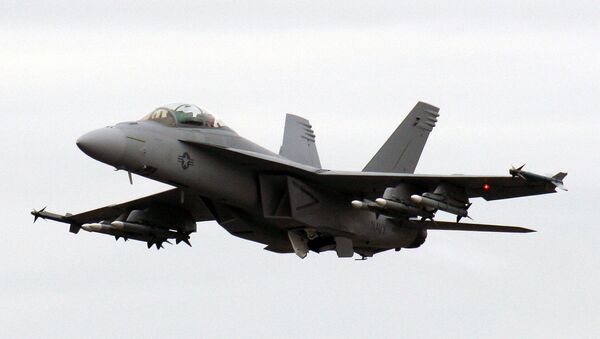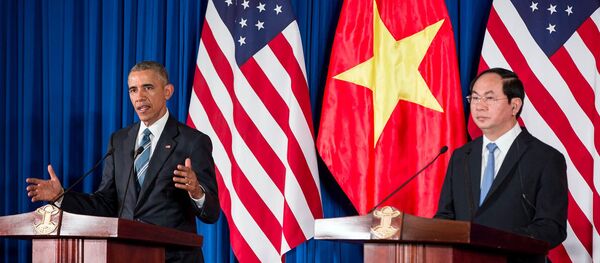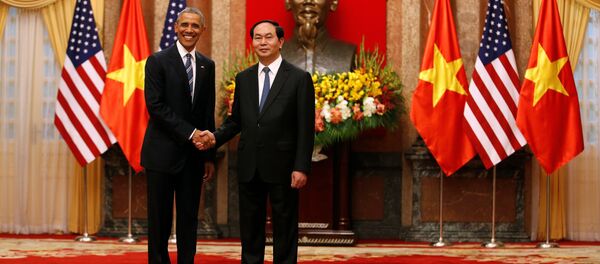WASHINGTON (Sputnik) — Obama announced in Hanoi on Monday the lifting of the US embargo on Vietnam during his three-day visit.
"Among the systems Hanoi reportedly is interested in are Lockheed Martin’s F-16 jets, Boeing’s F/A-18 Super Hornet jets, competing littoral combat ship designs from Lockheed Martin and General Dynamics, and precision-guidance munitions from Raytheon and Boeing," Jatras said on Tuesday.
Jatras dismissed Obama’s assurance on Monday that his decision to lift the arms embargo was not based on China or any other considerations as unworthy of serious consideration.
"News reports indicate that Boeing, Lockheed Martin, Raytheon and General Dynamics are already lining up, with some major announcements expected before the end of this year," Jatras, a former foreign policy adviser to Republican members of the US Senate, noted.
However, while such arms sales might prove profitable for major US defense contractors, they would also propel the United States further down the road toward a potential confrontation with China, Jatras warned.
"President Obama’s decision to lift bans to weapons sales to Vietnam is another step along the road to a major confrontation between the United States and China."
If Vietnam does buy large quantities of US weapons, it will boost its influence on US foreign policy and feed pressures for Washington to step up its confrontations with China, Jatras warned.
"Vietnam is the world’s eighth-largest arms importer with purchases virtually all aimed at China, and therefore it is set to become another Saudi Arabia in terms of the influence it exercises over US policy."
Washington was needlessly provoking clashes with China just as it was against Russia on the other side of the world, Jatras emphasized.
"The Obama administration has treated China’s territorial claims in the South China Sea with the same recklessness evident in NATO’s beefed-up presence in the Baltic and Black seas with respect to Russia."
Both regions were areas where US interests were next to nil, yet Washington regarded them as vital to the major power it was challenging, supposedly to protect allies and partners whose contribution to American security was nonexistent, Jatras elaborated.
However, the growing US ties with Vietnam would threaten Russian interests in the region as well, Jatras claimed.
"But a budding US-Vietnam axis does not directly threaten Russia in its own neighborhood: It is likely something Moscow can find a way to adjust to."
Also, unlike the United States, Russia had proven capable of seeing other countries’ relationships with third parties in other than simple binary terms, Jatras concluded.



